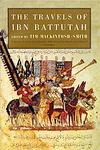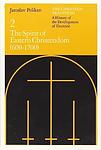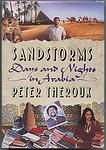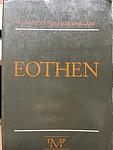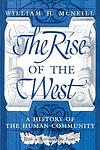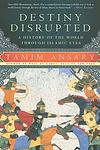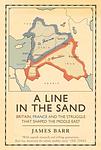The Greatest "Middle East, History" Books of All Time
Click to learn how this list is calculated.
This list represents a comprehensive and trusted collection of the greatest books. Developed through a specialized algorithm, it brings together 300 'best of' book lists to form a definitive guide to the world's most acclaimed books. For those interested in how these books are chosen, additional details can be found on the rankings page.
Genres
The category of "History" in books refers to the study and interpretation of past events, societies, and cultures. It encompasses a wide range of topics, including political, social, economic, and cultural developments, as well as the lives of individuals and groups who have shaped the course of history. History books can be written from various perspectives and may focus on specific time periods, regions, or themes. They aim to provide readers with a deeper understanding of the past and its impact on the present.
Countries
Date Range
Reading Statistics
Click the button below to see how many of these books you've read!
Download
If you're interested in downloading this list as a CSV file for use in a spreadsheet application, you can easily do so by clicking the button below. Please note that to ensure a manageable file size and faster download, the CSV will include details for only the first 500 books.
Download-
1. Travels (Ibn Battúta) by Ibn Battúta
The book is a comprehensive travelogue written by a 14th-century Moroccan scholar and explorer who traveled extensively across the known world, from Africa to the Middle East, India, China, and Europe. The author shares his observations and experiences in vivid detail, offering unique insights into the diverse cultures, religions, and societies he encountered during his journeys. His accounts serve as a significant historical record of the world during the Middle Ages, providing a firsthand perspective of life during that period.
-
2. The Christian Tradition by Jaroslav Pelikan
"The Christian Tradition" is a comprehensive exploration of the historical development of Christian doctrine from the first century to the present day. It provides an in-depth analysis of the key figures, events, and ideas that have shaped Christian thought, emphasizing the diversity and richness of the tradition. The author meticulously examines the evolution of Christian beliefs, the controversies and conflicts that have arisen over the centuries, and the ways in which these beliefs have been interpreted and reinterpreted in different historical and cultural contexts.
-
3. Sandstorms by Peter Theroux
"Sandstorms" is a compelling narrative that explores the intricate cultural and political landscapes of the Middle East. Through a series of interconnected stories and personal journeys, the book delves into the lives of individuals caught in the region's tumultuous sandstorms of change and conflict. The author offers a vivid portrayal of the Middle East's diverse societies, examining the impact of historical legacies and modern challenges on the people who navigate the shifting sands of identity, loyalty, and survival. With a keen eye for detail and a deep understanding of the region's complexities, the narrative provides a thought-provoking glimpse into the heart of a world often misunderstood by outsiders.
-
4. Eothen by Alexander William Kinglake
"Eothen" is a vivid travelogue that chronicles the author's journey through the Middle East in the 1830s, capturing the essence of the region with a blend of personal adventure, cultural commentary, and historical insight. The narrative takes the reader on an evocative trip across countries like Turkey, Cyprus, Lebanon, Syria, Palestine, Egypt, and Jordan, offering a glimpse into the customs, landscapes, and daily life of the time. The author's keen observations and descriptive prowess bring to life the exotic locales, the encounters with diverse peoples, and the challenges of travel in an era before modern conveniences, all while reflecting the Victorian fascination with the Orient and its perceived mysteries.
-
5. The Rise of the West by William H. McNeill
"The Rise of the West" is a comprehensive historical narrative that explores the development of Western civilization from the early stages of human history to the 20th century. The book provides a detailed analysis of various civilizations around the world, their interactions, and the resulting cultural exchanges that have shaped the modern world. It also discusses the significant factors, such as technological advancements, religious transformations, and political changes, that have contributed to the West's ascendancy.
-
6. The Valleys of the Assassins by Freya Stark
This travelogue presents the author's journey through the Middle East, specifically Persia, in the early 20th century. The narrative is a blend of history, geography, and personal exploration, as the author ventures into remote and dangerous regions, including the infamous "Valleys of the Assassins." The book provides a detailed and vivid account of the author's experiences and observations, bringing to life the landscapes, cultures, and histories of the regions she explores.
-
7. The Prize: The Epic Quest for Oil, Money, and Power by Daniel Yergin
"The Prize: The Epic Quest for Oil, Money, and Power" is a comprehensive history of the global oil industry, tracing its development from the drilling of the first well in Pennsylvania to the oil crisis of the 1970s and its aftermath. The book examines the key players, political conflicts, and technological advancements that have shaped the industry, and explores the profound impact of oil on the global economy and geopolitics. It also discusses the environmental and social challenges associated with oil production and consumption.
-
8. A History of the Crusades by Stephen Runciman
This book offers a comprehensive and detailed examination of the Crusades, a series of religious wars fought in the medieval period. The author delves deep into the political, economic, and social circumstances that led to the wars, the key figures involved, and the long-lasting effects on both the Christian and Muslim worlds. The narrative is both scholarly and engaging, providing a balanced perspective on one of history's most complex and controversial periods.
-
9. A Peace To End All Peace by David Fromkin
The book provides a detailed historical analysis of the Middle East from the onset of the First World War through to the early 1920s, focusing on how the decisions and actions of European powers, particularly Britain, led to the dismantling of the Ottoman Empire and the arbitrary redrawing of borders. It explores the diplomatic intrigues, strategic considerations, and often conflicting interests that shaped the modern Middle East, leading to a legacy of turmoil and conflict. The narrative critically examines the consequences of foreign intervention and the imposition of artificial state boundaries, shedding light on the origins of many of the region's ongoing struggles.
-
10. Destiny Disrupted by Tamim Ansary
The book provides a sweeping historical account of the world from the perspective of Islamic civilization. It spans from the time of the Prophet Muhammad to the early 21st century, offering insights into how Muslims have seen their history unfold, which is markedly different from the Western narrative. The author delves into the rise and fall of empires, the evolution of Islamic thought, and the complex interactions between the Muslim world and the West. This narrative aims to bridge cultural divides by presenting a story that is often left out of typical Western-centric historical accounts, thus giving readers a more nuanced understanding of global history and the roots of contemporary geopolitical issues.
-
11. A Line In The Sand by James Barr
This book delves into the complex history of the modern Middle East, focusing on the post-World War I era when Britain and France drew arbitrary borders, creating new nations and sowing the seeds for future conflicts. It examines the clandestine struggle between these colonial powers as they vied for dominance in the region, often at the expense of the local populations. The narrative reveals how the duplicitous actions and broken promises of Western powers during this period set the stage for enduring turmoil and established a legacy of distrust and instability that continues to affect the geopolitics of the Middle East to this day.
-
12. Crusade and Jihad: Islam and the Christian World by Bassam Tibi
This book explores the historical, ideological, and political aspects of the Crusades and Jihad, comparing and contrasting the two. It delves into the origins and evolution of the Crusades and Jihad, their impact on Christian and Islamic societies, and their relevance in today's world. The author also examines the role of religion in conflicts and the use of religious ideologies for political purposes, providing a comprehensive understanding of these complex issues.
Reading Statistics
Click the button below to see how many of these books you've read!
Download
If you're interested in downloading this list as a CSV file for use in a spreadsheet application, you can easily do so by clicking the button below. Please note that to ensure a manageable file size and faster download, the CSV will include details for only the first 500 books.
Download